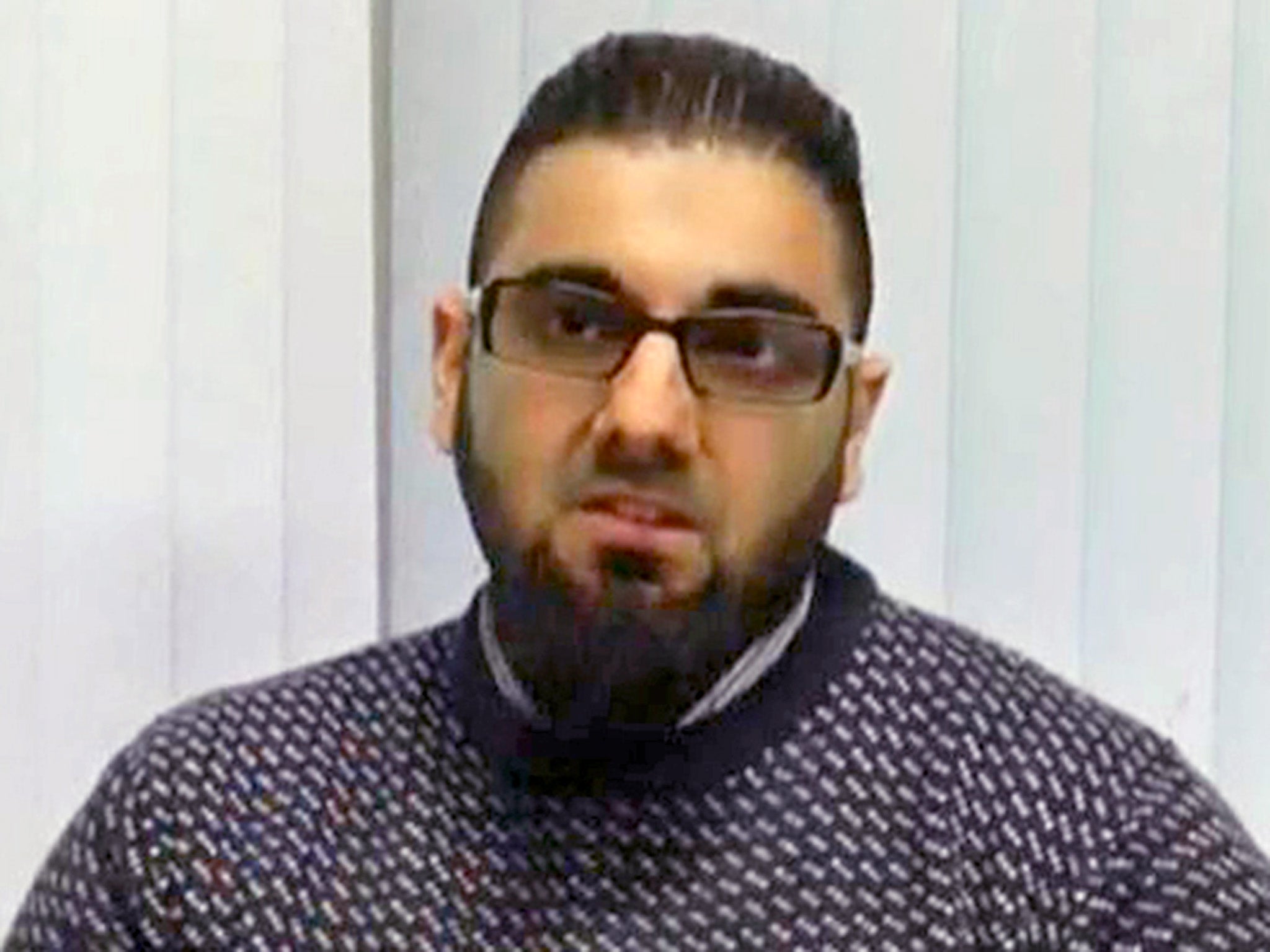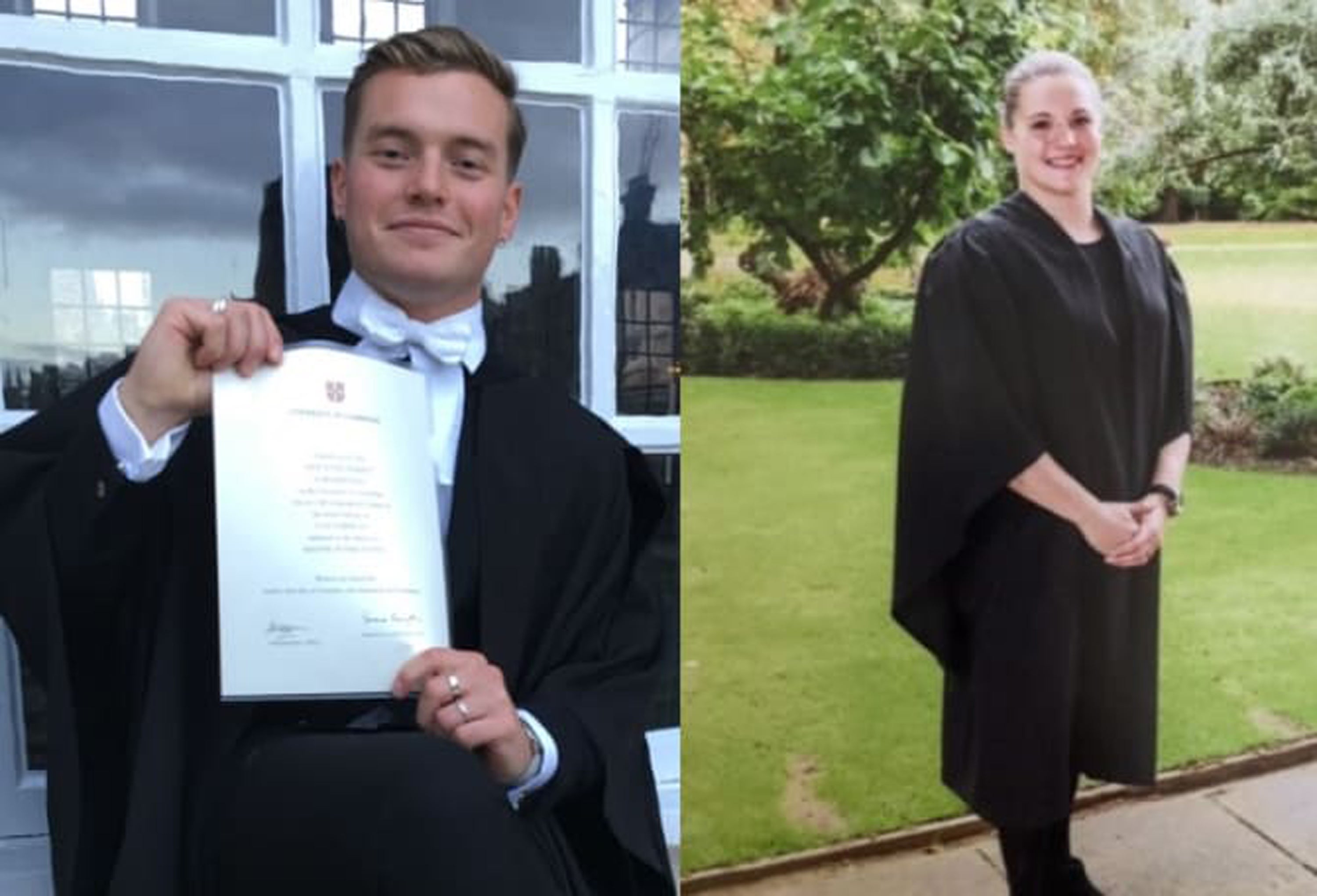Fishmongers’ Hall terror attacker graded ‘low risk’ by officials days before knife rampage, inquest hears
Assessment came after Usman Khan made ‘nonsense’ claims about past terror offending in probation interviews

Your support helps us to tell the story
From reproductive rights to climate change to Big Tech, The Independent is on the ground when the story is developing. Whether it's investigating the financials of Elon Musk's pro-Trump PAC or producing our latest documentary, 'The A Word', which shines a light on the American women fighting for reproductive rights, we know how important it is to parse out the facts from the messaging.
At such a critical moment in US history, we need reporters on the ground. Your donation allows us to keep sending journalists to speak to both sides of the story.
The Independent is trusted by Americans across the entire political spectrum. And unlike many other quality news outlets, we choose not to lock Americans out of our reporting and analysis with paywalls. We believe quality journalism should be available to everyone, paid for by those who can afford it.
Your support makes all the difference.An official assessment found a terrorist’s risk of extremist offending was “low” days before he launched an attack where he murdered two people, an inquest has heard.
Usman Khan was under intense monitoring by the probation service and police after being released from prison in December 2018, but was able to go on a deadly rampage at Fishmongers’ Hall almost a year later.
He had been in jail for eight years for preparing acts of terrorism, by planning to set up a terrorist training camp in Kashmir as part of a wider cell that was also plotting attacks in the UK.
Inquests into his victim’s deaths have been told that Khan was a high-risk category A prisoner throughout his sentence and associated with other terrorists.
Intelligence also suggested he radicalised fellow inmates and planned to launch an attack after being freed, but an Extremism Risk Guidelines (ERG 22+) report drawn up in November 2019 concluded: “Khan’s likelihood of reoffending and risk of extremist offending is low.”
It added: “Since his release on 24 December 2018 … there has been no demonstration of attitudes supporting or justifying offending of any nature.”
Days later, Khan launched a knife rampage at Fishmongers’ Hall in London, where he murdered two people before being shot dead by police on London Bridge.
The draft ERG 22+ report, which was shown to inquest jurors on Tuesday, was drawn up by a probation officer following interviews with Khan.
It reported that Khan believed his original terror offending was in response to “personal injustice in that his own property had been raided by the authorities”.
Khan also told probation officers that he was a victim of racism at school, and felt he did not “fit in” either in the UK or Pakistan.
He claimed he had wanted to construct a mosque in Pakistan “to find meaning and purpose” and what weapons were for “self-defence”.
Documents from Khan’s original terror trial show that he admitted preparing acts of terrorism by constructing a training camp in Kashmir.
In 2012, he said the camp would be for men fighting to bring Sharia law to the region, but that he also intended to undertake firearms training there himself.
Khan and his co-defendants admitted that trainees could have then returned to the UK to commit an attack on home soil.
In interviews with probation officers, Khan claimed he “just turned up” to hate preaching stalls, although a judge found that he was a senior figure in a terror cell linked to Anjem Choudary’s al-Muhajiroun network.
Jonathan Hough QC, counsel to the inquests, said Khan’s claims in the 2019 assessment were “nonsense” and questioned why they were not fact-checked or challenged in the document.
Sumeet Johal, a counter-terrorism probation officer who was responsible for Khan, said officials were aware that Khan’s accounts were not “completely accurate”.
“When we deal with ERGs we are not verifying whether there is an injustice or not, we are looking at their perception of injustice and how that reacts with their extremism,” he told the inquests.
Mr Hough said the report was “produced very shortly before Khan perpetrated a terrible terrorist outrage”, and asked whether probation officers were deceived or if something had changed in a very short time period.

“I can’t answer if he deceived us,” Mr Johal replied. “Those scorings were based on the evidence we had in front of us. The ERG was completed in line with the guidance.”
A previous report relating to Khan’s time in prison said that “assessments within custody would indicated that his attitudes and beliefs have not changed greatly since he was imprisoned”.
It added: “There are concerns that much of Khan’s engagement is superficial in nature, although his attitude and behaviour has continued to improve in the run up to release.”
The report identified key areas needing intervention including employment, training and “pro-social activities”.
But the inquests heard that in the 11 months between his release from prison and the attack, Khan struggled to find employment because of his terror conviction and remained socially isolated.
He was undergoing mentoring as part of the government Desistance and Disengagement Programme, but the hearing was told that probation officers were dissatisfied with the quality of the work.
The sessions stopped in August 2019 because of a contract dispute between the company supplying the mentors and the Home Office, and mentoring did not resume before the attack.
Khan was also the subject of regular Multi-Agency Public Protection (Mappa) meetings bringing together police, probation and other agencies.
The inquests heard that the prison rehabilitation event where he launched his rampage was mentioned at an August meeting, and then logistics regarding transport were discussed two weeks before the attack in November.
Minutes of the meetings do not show any discussion of Khan posing a potential risk to attendees of the event, at what Mr Hough called a “location attractive for terrorists” on London Bridge.
The inquests continue.


